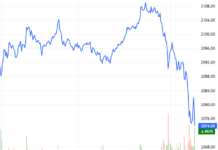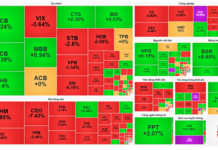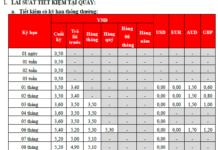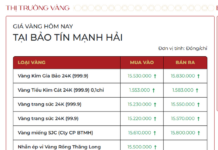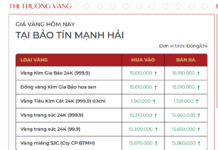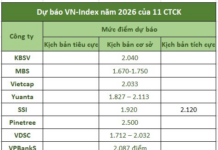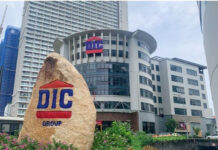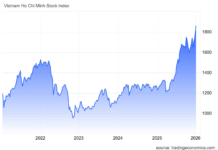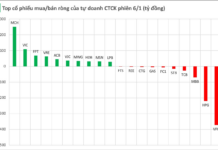Amidst the ongoing surge in apartment prices, recent scenes of crowds jostling and pushing to secure purchasing rights at a Ho Chi Minh City project have exposed a troubling market reality.
Manipulative Tactics Driving Prices
Last weekend, a viral video captured dozens scrambling in a registration hall within An Khanh Ward, Ho Chi Minh City, during a housing unit sales event. In the footage, a woman in a suit distributing tickets was instantly mobbed, with individuals shouting and grabbing. Two women even climbed onto a table, wrestling for a green paper believed to be a registration form, turning the scene into chaotic pandemonium.
Organizers reported over 2,000 registrants for just 500 units, a 4:1 competition ratio, despite non-negotiable prices averaging VND 58 million per square meter (excluding VAT and discounts). This disparity fueled frenzied speculation and aggressive behavior.

Hundreds queue at a recent housing unit sales event. Photo: PHẠM ĐÌNH |
Similar frenzies occurred at affordable housing projects like Bcons City in Di An (Ho Chi Minh City) and Destino Centro in Phuc Yen (Tay Ninh), where prices as low as VND 1.5–1.7 billion per 50+ square meter unit attracted intense competition.
Notably, many buyers already owned homes but sought additional purchases, even exploiting loopholes to qualify for subsidized housing to profit from future price increases. One investor admitted early deposits with 12% discounts and historical post-handover price hikes made early commitments a low-risk gamble.
Economist Dr. Can Van Luc attributed the price surge to speculative manipulation. A survey of 600 real estate investors revealed 86% planned to sell within a year, highlighting short-term profit motives over long-term holdings.
Tran Khanh Quang, CEO of Viet An Hoa Real Estate, blamed developers for artificially creating scarcity through phased releases and enticing policies. “The 4:1 ratio at the 2,000-registrant event exemplifies how instant profits foster chaos and supply-demand imbalances,” he stated.
Regulatory Intervention Imperative
Ta Trung Kien, Deputy Director of Viet Asia Real Estate, agreed that developers engineered such frenzies. “To generate hype, they artificially restrict supply. Developers often require agents to secure 4–5 times more bookings than available units,” he explained.
Additionally, phased pricing strategies exploit buyer fear of missing out, forcing purchases at higher rates. Agents failing to meet targets face penalties and reputational damage.
Deputy Minister of Construction Nguyen Van Sinh acknowledged market shortcomings, particularly the shortage of affordable and social housing. The dominance of mid-to-high-end properties, despite high demand from low-income earners, creates bottlenecks enabling speculation and price distortions.
Experts and businesses urge state regulators to intervene decisively. Ta Trung Kien advocated stricter supply monitoring to prevent hoarding and price manipulation. Dr. Pham Viet Thuan emphasized the need for effective price controls, citing inflated land valuations and construction costs as key drivers.
Dr. Thuan proposed tighter oversight of social housing projects to prevent profiteering. He cited instances of resettlement unit resales yielding VND 1.2–1.8 billion profits, underscoring regulatory gaps. “Expanded social housing initiatives are essential to meet genuine societal needs,” he urged.
|
Property Taxation Proposed Dr. Can Van Luc suggested property taxation as a speculative deterrent. He cited global precedents like transaction taxes, levies on second homes, and inheritance taxes. However, implementation requires robust data systems to identify multiple property owners and assess values. “With 1–2 years for data preparation, a property tax law targeting second homes and vacant land could curb speculation and normalize prices,” he projected. |
SƠN NHUNG – THÁI PHƯƠNG
– 07:00 30/09/2025
Economist Warns: Over-Reliance on Bank Credit Poses Significant Risks to Real Estate Sector
Real estate lending has surged, outpacing overall growth rates. Experts warn that the property market’s heavy reliance on bank credit poses significant risks, questioning its long-term sustainability.
Multi-Star Solutions: Real Estate Prices Remain Unyielding
Over the past two years, countless discussions have revolved around solutions for the real estate market, pinpointing various causes and proposing numerous measures. Yet, despite these efforts, housing prices remain stubbornly high, leaving many struggling to afford them. What explains this persistent gap between extensive dialogue and tangible results?

